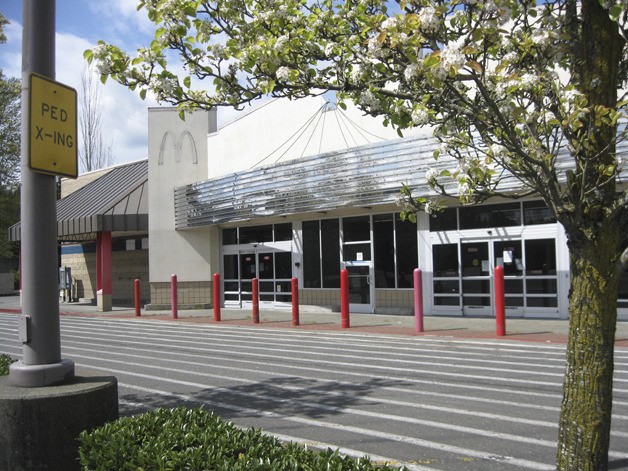The City of Auburn sued Walmart Stores, Inc. three weeks ago to hold the retail giant to the letter of a five-year-old agreement in which it had committed to do something with its former store and building site at 1425 Supermall Way in exchange for breaks on the development of its superstore.
Officials filed suit, they said, so Auburn’s name would not end up on the long list of cities across the country stuck with decaying shells of former Walmart buildings.
On Monday the City Council gave Auburn Mayor Pete Lewis the go ahead to execute a contract with Walmart, settling for now the lawsuit and code enforcement action outside of a courtroom.
The City had threatened to close the superstore by revoking its business license and occupancy permit.
Walmart took the threat seriously.
“For the past two weeks, we have been meeting with Walmart on almost an hourly basis,” Lewis said. “This agreement holds Walmart either to bring in a developer acceptable to the City or to redevelop the site. If they bring in a new developer, then that developer is also bound by this agreement to do exactly the same things.”
And if Walmart doesn’t keep the agreement, Lewis continued, the agreement allows for monthly liquidated damages for up to 18 months, or $220,000. Closing the store and restarting the suit remains options.
Now Walmart must follow through.
Walmart has not returned phone calls for this article.
The new store — at 762 Supermall Way SW, north of the Regal Cinemas – opened last October. It is 83,700 square feet larger than the old store. The City claims it had saved the company big money on the superstore by allowing it to be developed to less stringent standards that had been in effect when the SuperMall was built, in exchange for its commitment regarding the smaller site.
Here are some key details of the settlement:
Walmart earlier this year entered into a purchase and sale agreement with Black Equity Group (BEG) for the former site. If BEG should close on that deal after the due diligence period expires in June, the transaction would have to close on or about July 10. The settlement gives Walmart room to extend the deadline to July 31, however, with the City’s prior written consent.
By July 31, Walmart would provide the City with one of the following: a copy of the recorded deed for the BEG transaction; notice that it had executed a purchase and sale agreement with Hawkins Edwards, Inc., another approved developer, or with Glimcher Supermall Venture, LLC, the SuperMall’s owner, along with written confirmation that the developer had agreed to abide by the agreement; notice that Walmart would like to execute a purchase and sale agreement with another developer; or notice that Walmart would proceed to re-tenant the building.
By Oct. 27, Walmart and/or the developer would provide the City letters of intent from one or more tenants of the former site. The City would have 10 days to approve of any such tenants. If Walmart fails to provide such a letter of intent, it would still be obligated to market the site to prospective tenants.
Details of the deal
The settlement agreement lists four re-use options for the site of the former store:
• Re-tenant the existing 130,000-square-foot building. This would require no more than minor reconstruction but not call for any retail pads or out-parcels.
• Rebuild and re-tenant the existing building — to a minimum of 120,000 square feet — for at least two approved tenants, with no retail pads or out-parcels.
• Redevelop the site to a minimum of 100,000 square feet. Alternatively, Walmart or the developer could tear down the existing structure and redevelop the site with some combination of retail building, including at least two retail pads with an aggregate gross building area of at least 100,000 square feet. Final compliance would depend on leasing 100,000 square feet of gross building area to multiple tenants.
Any tenants would have to be acceptable to the City. The City would also have to approve any deadline extensions. The City and Walmart would cooperate to market the site to prospective tenants.
If Walmart and or the developer has not fully complied with the performance measures by Oct. 27, it would then be required to pay $50,000 as a one-time liquidated damages payment and $10,000 per month, for as long as the liquidated damages remain in force. Payment would constitute compliance with the agreement. If after 18 months of payment the building had not been re-tenanted, Walmart would then notify the City that it intends to demolish the building. The damages will end on the date of demolition, and Walmart’s obligations will end when the existing building is torn down and Walmart pays a additional $100,000.
Upon execution of the agreement, the City would dismiss its lawsuit and withdrew its code enforcement action, though it could take them up again at a future date.


